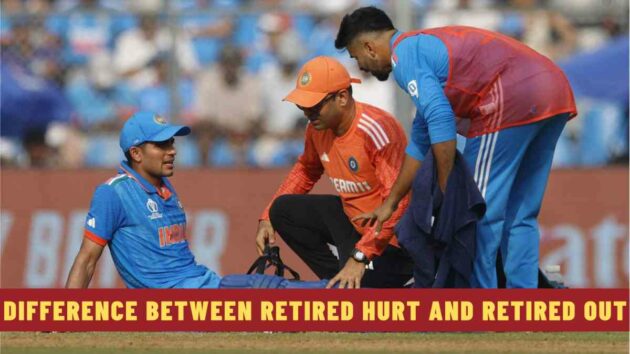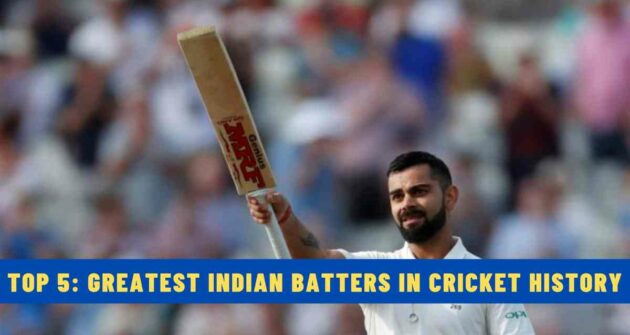Retired out isn’t a new feature in the game but is used in rare cases, which can change in the shorter format. Using retired out tactically, the batting team can substitute a batter with another if the team feels that batter can be resourceful in that kind of situation in that particular game.
On the other hand, in the case of retired hurt, if the batter isn’t able to bat due to illness or any injury, he can retire hurt. As per the laws of the Marylebone Cricket Club (MCC), a batter can take a call if he is unable to bat due to any illness, unavoidable circumstances, or injury. The batter has to take the umpire’s permission before making a decision.
Examples of Retired out and Retired hurt
During the 2023 IPL season, Delhi Capitals were facing Punjab Kings in one of the games when Atharva Taide of the Kings retired out after the 15th over ended.
Taide scored 55 runs in 42 balls, hitting 5 fours and 2 sixes, but he was replaced by Jitesh Sharma, who plays with an attacking intent. Jitesh Sharma was called in to up the scoring rate. Punjab Kings needed 86 runs in 5 overs.
Although Taide had scored a half-century, he wasn’t able to score through boundaries and sixes, which was the reason why Jitesh Sharma was sent in at his place to assist the destructive Liam Livingstone. However, the plan wasn’t successful, as Jitesh Sharma got out for a duck but the plan adopted by Punjab Kings team management was clear.
IPL 2022 witnessed the first instance of retired hurt during a match between Rajasthan Royals and Lucknow Super Giants. Ravichandran Ashwin was at the crease while batting for Rajasthan Royals, but he was replaced by Riyan Parag.
Ashwin scored 28 in 23 balls but was substituted by Parag in the 19th over. Rajasthan Royals won the match by 3 runs.
What does the MCC’s Law on Batters Retiring Say?
When the ball is dead, the batter might retire at any given time during his/her innings as per Law 25.4.1. The umpire’s permission is needed, as he needs to be informed before the play starts about why the batter is retiring.
If a batter retires hurt because of any injury, illness, or any unavoidable circumstances, then the batter can surely resume his/her innings whenever the batter feels he/she is fit to play as per Law 25.4.2. The batter is deemed to be ‘retired-not out’ if this doesn’t happen for any reason.
If the batter feels that he is fit to resume his innings, then the permission of the opposition skipper and umpire is needed as per Law 25.4.3 if a batter retires for any other reason except that of 25.4.2.
Read Next | Concussion Substitute Rule in Cricket – Explained











